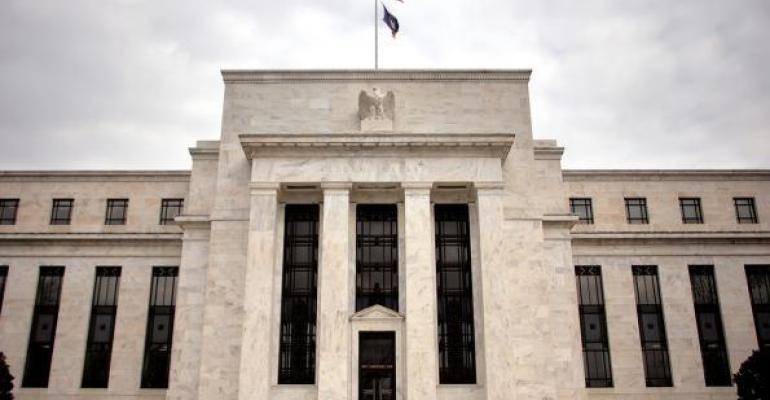By Bloomberg News
(Bloomberg) --When successive coin flips turn up heads, a gambler’s instinct would dictate the next toss results in tails -- even if the odds are still 50-50.
That’s the so-called gambler’s fallacy, and financial markets are at risk of making a similar mistake of letting past precedent have influence when it comes to the outlook for Federal Reserve interest-rate hikes, some investors warn. While traders have been lulled by a record of the Fed proving less hawkish than expected, things could change over the coming year.
The scenario some are eyeing: the Trump administration’s coming fiscal stimulus spurs a rapid pick-up in inflation, given the lack of slack in the U.S. economy, with unemployment historically low. Fed Chair Janet Yellen, who has overseen just two rate rises since taking the helm three years ago, then might need to move faster, triggering a surge in the dollar.
“Trump will be inflationary,” Vimal Gor, head of income and fixed interest at BT Investment Management, which has about $67 billion under management, said at a conference in Sydney Tuesday. “The curve out for the next couple of years looks woefully” low in its expectations for interest rates given the likelihood of a Fed response to changing fundamentals, he said.
Though Yellen on Tuesday underscored that the Fed should avoid waiting too long to remove policy accommodation, and flagged that March would be a “live” meeting to consider raising the benchmark rate, markets still are discounting just two hikes this year. Looming in investor memories: the Fed at one point anticipated four moves in 2016, only to enact one.
It has been rare for the Fed to surprise on the tighter side of policy, though under Ben S. Bernanke it was charged with moving too slowly to ease as credit markets seized up in the summer of 2007. The dollar climbed briefly in May 2013 when Bernanke warned of the potential to taper quantitative easing, and advanced in January 2005 when the Fed unexpectedly said rates were “below the level” needed to slow inflation.
“Trump runs the risk of overstimulating the economy,” said Matthew Sherwood, head of investment strategy at Perpetual Ltd. in Sydney, which manages about $21 billion. “At basically full employment, an injection of fiscal stimulus soaks up spare capacity, and that’s associated with rising inflation. The Fed at the moment is very dovish and they’ll only change their spots if inflation supports doing so.”
Yellen makes her second appearance this week before Congress on Wednesday.
The experience of other developed nations shows what can happen when central banks turn hawkish. Australia’s dollar jumped almost 50 percent during 2009 and 2010 as a mining investment boom saw the Reserve Bank boost rates by 1.75 percentage points. The Canadian dollar climbed more than 5 percent in 2010 as the Bank of Canada bolstered its benchmark to 1 percent. Both countries, and New Zealand, saw policy makers reverse course after currency strength contributed to undermining economic growth.
“The Fed could actually turn hawkish and tighten policy too much,” Joachim Fels, chief economic adviser at Pacific Investment Management Co., told the Sydney conference via a video link on Tuesday.
One wild card on Fed policy is the makeup of its board. Two of the seven positions are open, and a third member’s pending resignation gives Trump almost half the slots to fill. And later this year, markets may be caught up in speculation on a successor to Yellen, whose term as chair ends in February 2018.
Michael Every, head of financial markets research at Rabobank Group in Hong Kong, encapsulated investors’ premise about the outlook, in a note after Yellen’s first of two semiannual congressional hearings on the economy:
“It is not like the Fed we all know (and love?) to ever dare to surprise us with a hike” that investors weren’t certain was coming.
--With assistance from Matthew Burgess and Adam Haigh.To contact Bloomberg News staff for this story: Ruth Liew in Sydney at [email protected] ;Emma O'Brien in Beijing at [email protected] To contact the editors responsible for this story: Christopher Anstey at [email protected] Garfield Reynolds





